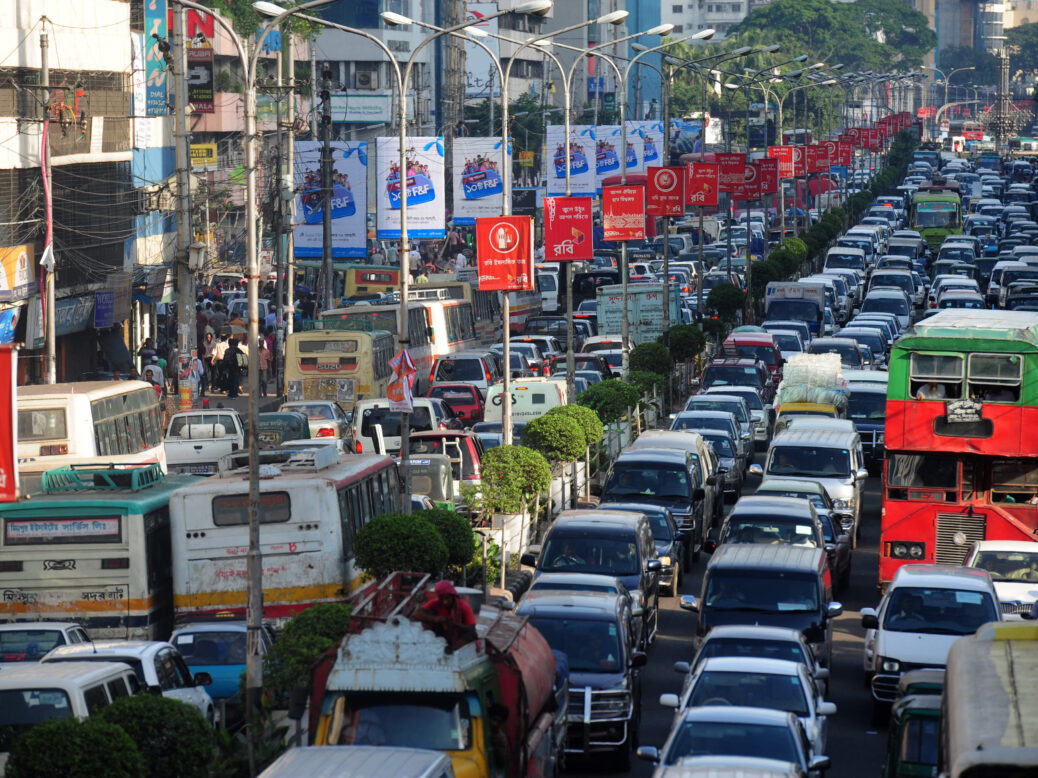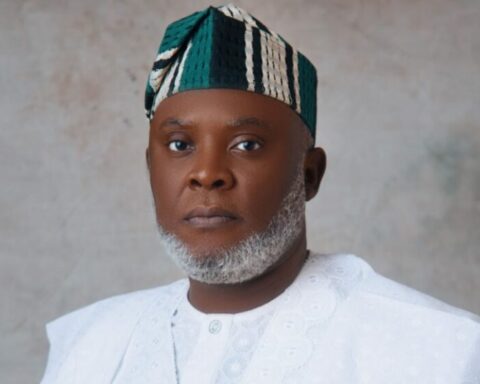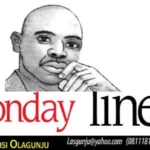By Dr. Charles Obiajulu Ugwu
The Anatomy of Our National Gridlock
Nigeria’s crisis is not merely the sum of bad leaders, fragile institutions, or economic volatility. It is the slow ossification of a nation’s moving parts , the gradual cementing of inefficiencies, mistrust, and contradictions into the very arteries of public life. This is not the dramatic collapse of a single coup or the shock of a market crash; it is the quieter suffocation of potential, the erosion of possibility through compounded neglect.
In Lagos, a container truck tips on a bridge and the entire city convulses for hours. In Abuja, a budget is delayed by political horse-trading, and civil servants nationwide freeze in uncertainty. A power grid trips, and millions across the country instinctively reach for generators, as if blackouts were a natural season in the calendar year. These are not isolated mishaps. They are the echoes of a system that has forgotten how to move with agility. Our economy, governance, and society are caught in a national gridlock, a condition where movement exists but progress does not; where activity is confused for achievement.
Globally, this condition is recognisable. Argentina wrestles with inflationary cycles that refuse to break. South Africa chokes on “load shedding” as electricity shortages undercut industrial confidence. Even in advanced economies, like Italy, government turnover rates and bureaucratic drag have turned reform into a seasonal sport. But in Nigeria, the stakes are existential. We are not simply fighting for efficiency; we are fighting for national survival.
II. Understanding the Nigerian Gridlock
The Nigerian gridlock is sustained by a set of self-reinforcing loops:
1. Institutional Decay → Public Mistrust → Policy Sabotage
The weaker our institutions, the less trust the public invests in them; the less trust they receive, the more fragile they become. This spiral turns every new policy into a contested territory before it even has a chance to work.
2. Elite Capture → Reform Paralysis → Public Resignation
A small circle benefits from the dysfunction, preserving their influence by preventing disruptive reform. This entrenches public cynicism and normalises mediocrity as the standard.
3. Fragmented Priorities → Inconsistent Execution → Recycled Failure
Without a coherent national agenda, governance becomes a portfolio of uncoordinated experiments. Ministries chase their own metrics; states replicate each other’s mistakes; federal goals dissolve into regional rivalries.
The outcome? A country permanently in motion but rarely in transition.
III. Why This Manifesto Now
We are entering a decade where Nigeria’s population will swell past 250 million, where our youth will outnumber any other age group, and where climate, technology, and geopolitics will redraw the global economic map. If we remain trapped in the current gridlock, the sheer weight of our unrealised potential will turn into a destabilising force not just for Nigeria, but for West Africa and beyond. This manifesto is a statement of refusal: we will not let inertia become our national identity.
IV. The Renewal Agenda: Eight Strategic Breakthroughs
This is not a wish list. It is a set of structural imperatives each designed to attack a choke point in Nigeria’s system and create irreversible momentum.
1. Institutional Reset: – Rebuilding the Machinery of Governance
No amount of economic policy will work if the institutions that execute them remain brittle. We need deep re-professionalisation of the civil service, grounded in meritocracy, digital transparency, and performance-linked incentives. The UK’s post-war Civil Service reform and Singapore’s long-term bureaucratic excellence both prove the same truth: policy without a competent administrative engine is a beautifully written manual for a machine that doesn’t exist.
Nigeria’s opportunity
Institute a ten-year civil service renewal plan with a binding constitutional clause for political insulation of key agencies.
2. Economic Diversification as National Security
We cannot continue to ride the boom-and-bust cycles of oil dependency. Diversification must be treated not as a sectoral policy but as a security imperative. Agriculture, digital services, and renewable energy should form the tripod of Nigeria’s next economic identity. Vietnam’s rapid agricultural reform in the 1990s and Estonia’s leap into digital governance show how small, focused bets can reposition a country in a single generation.
3. Infrastructure as a Commons, Not a Contract Opportunity
Our roads, ports, power grids, and digital networks must be treated as national commons assets that define the possibilities of every citizen’s life. This means prioritising lifecycle maintenance, public oversight, and open-data tracking of infrastructure projects. The Lagos–Ibadan Expressway should not take longer to rehabilitate than the time it took China to build entire cities from scratch.
4. Security as an Economic Enabler
Nigeria’s security crisis is not just a humanitarian tragedy; it is a direct tax on growth. When farmers cannot access their land, when supply chains are disrupted by banditry, when investors calculate “risk premiums” before committing capital, the economy bleeds. We must integrate security policy with economic planning by ensuring that stability zones are created where industries, agriculture, and logistics can operate without constant disruption. Colombia’s urban turnaround in Medellín shows that security gains can be engineered through a blend of intelligence-led policing, community engagement, and targeted social investments.
5. Education as a Productivity Engine
Our current education model produces graduates mismatched to market needs, trapping young people in cycles of underemployment. We must rebuild curricula around critical thinking, digital fluency, and entrepreneurial problem-solving, not just rote memorisation. Rwanda’s aggressive investment in coding academies is proof that small countries can leapfrog skill gaps with intentional design.
6. Devolution with Accountability
Power must flow downwards, but so must accountability. State governments cannot demand more fiscal independence while perpetuating opacity in budgeting and procurement. We need a Charter for Responsible Devolution pact between federal and subnational governments that ties fiscal autonomy to measurable governance performance.
7. Climate and Resource Stewardship
Nigeria’s environmental fragility from desertification in the north to flooding in the south is no longer a slow-burn threat. It is here, now, shaping migration patterns, food prices, and public health. We must make resource stewardship central to economic planning, integrating climate resilience into every budget and project. This is not environmental charity; it is the survival economics of the next 50 years.
8. Citizen Data as a Sovereign Asset
A functioning digital identity system is the backbone of modern governance. Without a unified, secure, and universally adopted digital ID, service delivery, tax reform, and security intelligence will remain patchwork efforts. Estonia’s model shows that once identity is secure, trust in e-governance can scale quickly enabling everything from online voting to real-time social benefits.
V. The Political Will Question
Every reform agenda in Nigeria collapses against the same wall: lack of political will. But political will is not a mystical force; it is the product of public demand plus elite consensus. The more citizens refuse to normalise dysfunction by voting strategically, demanding performance metrics, and resisting ethno-religious manipulation, the harder it becomes for political actors to stall reform.
VI. Global Lessons, Nigerian Realities.
Reform cannot be copy-pasted. Nigeria must draw from other nations’ breakthroughs while adapting them to our own sociopolitical fabric. Singapore teaches the power of long-term planning in a small state. Our challenge is doing so in a large, fractious federation. Rwanda shows how governance discipline can transform post-crisis societies. Our challenge is embedding that discipline without authoritarian overreach. Brazil shows the peril of reform without inclusive growth. Our challenge is ensuring that efficiency does not concentrate benefits at the top.
VII. A Closing Reckoning
A manifesto is only as powerful as the coalition willing to live it. If we choose to remain in the current gridlock, we will become a cautionary tale in African history , the giant that tripped over its own feet. But if we break the gridlock, Nigeria can pivot from being a symbol of squandered potential to a template for 21st-century African renewal. The choice, as always, is ours.
Dr. Charles Obiajulu Ugwu
Management consultant, adaptability thought leader, and regenerative systems expert. A contrarian mind with a flair for disruptive clarity, Dr. Ugwu works at the intersection of strategic leadership and societal transformation.


























